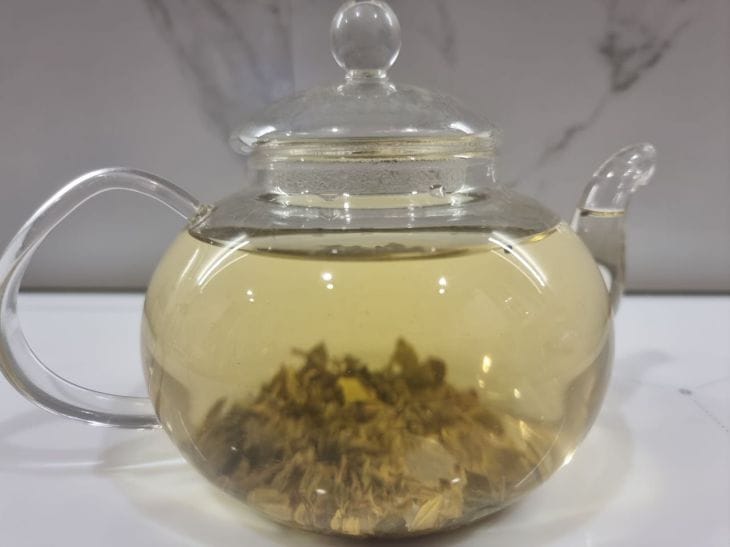You've probably heard that a cup of green tea a day "dissolves" fat.
Social media influencers swear that it speeds up metabolism, and pharmacy shelves are bursting with dietary supplements containing the extract of this drink.
But does it really work, or is it just a marketing gimmick? The answer lies in scientific data, expert opinions, and real stories from those who have tried it.

Back in 1999, The American Journal of Clinical Nutrition published a study that found that participants taking green tea extract burned 17% more fat during exercise.
The authors linked the effect to catechins, antioxidants that enhance fat oxidation.
But here's the catch: the experiment was conducted in a laboratory setting, where diet and activity were strictly controlled.
In real life, as nutritionist Lisa Moskowitz admits in an interview with Healthline , "tea alone won't make up for a bad diet or lack of exercise."
The main “active ingredient” in green tea is epigallocatechin gallate (EGCG). According to the European Journal of Nutrition (2021), it temporarily speeds up metabolism by blocking enzymes that break down norepinephrine.
This causes a slight thermogenic effect - the body burns slightly more calories. But for a noticeable result, as scientists have calculated, you need to drink 5-7 cups a day.
“It’s risky,” warns gastroenterologist Michael Peters on the Gut Check podcast. “Too much EGCG can cause nausea or damage the liver.”
Reviews from ordinary people are contradictory.
"I drank green tea with lemon instead of dinner for two months - minus 4 kg," shares user Olga on the forum "Lose Weight Together ." "But when I returned to my normal diet, the weight returned."
Another comment from Mark in the Telegram channel “Fitness without fakes”:
"Added 3 cups of tea to my workouts and diet. No change in a month. Maybe without it the result would have been the same."
Many people forget that green tea is not a magic elixir, but a part of culture.
Japan, where it has been drunk for centuries, has one of the lowest obesity rates in the world. But as chef and author of The Japanese Diet Makoto Suzuki explains, the secret is in pairing the tea with fish, vegetables, and small portions.
"If you drink tea with a burger and French fries, no miracle will happen," he jokes in a column for The Japan Times .
Another pitfall is supplements. Green tea extract capsules are often advertised as “fat burners,” but the FDA does not consider them a drug.
In 2020, Consumer Reports magazine tested 20 dietary supplements: 30% contained higher than safe EGCG levels, and 15% contained traces of pesticides.
“It’s better to brew the natural leaf,” advises nutritionist Ella Woods on the Well+Good blog. “That way, you know exactly what you’re drinking.”
The psychological aspect is also important. Dr. Rebecca Scritchfield , author of the bestselling book “Body Kindness,” notes:
“People believe in ‘miracle products’ to avoid difficult decisions, such as giving up sugar.
Green tea becomes a placebo that soothes the conscience." This is confirmed by a study by the University of Birmingham (2022): 60% of subjects who took tea extract began to eat more, believing that the supplement "neutralized" calories.
So is green tea worth your time? According to Nobel laureate Elizabeth Blackburn , who studies aging, moderate consumption is beneficial.
In her book, The Telomere Effect, she writes, "Tea's antioxidants protect DNA, which indirectly supports healthy weight." But relying solely on that is naive.
As celebrity trainer Harley Pasternak sums it up in an interview with People :
"Tea is like a good bonus in a game. It only works if you're already eating right and moving."
The paradox is that green tea is both a myth and a reality. Yes, it slightly speeds up metabolism, but it does not replace the basic rules.
As fitness model Kayla Itsines put it on Instagram:
"I drink it because I love the taste. And my abs are the result of thousands of crunches, not cups." That might be the most honest answer.








